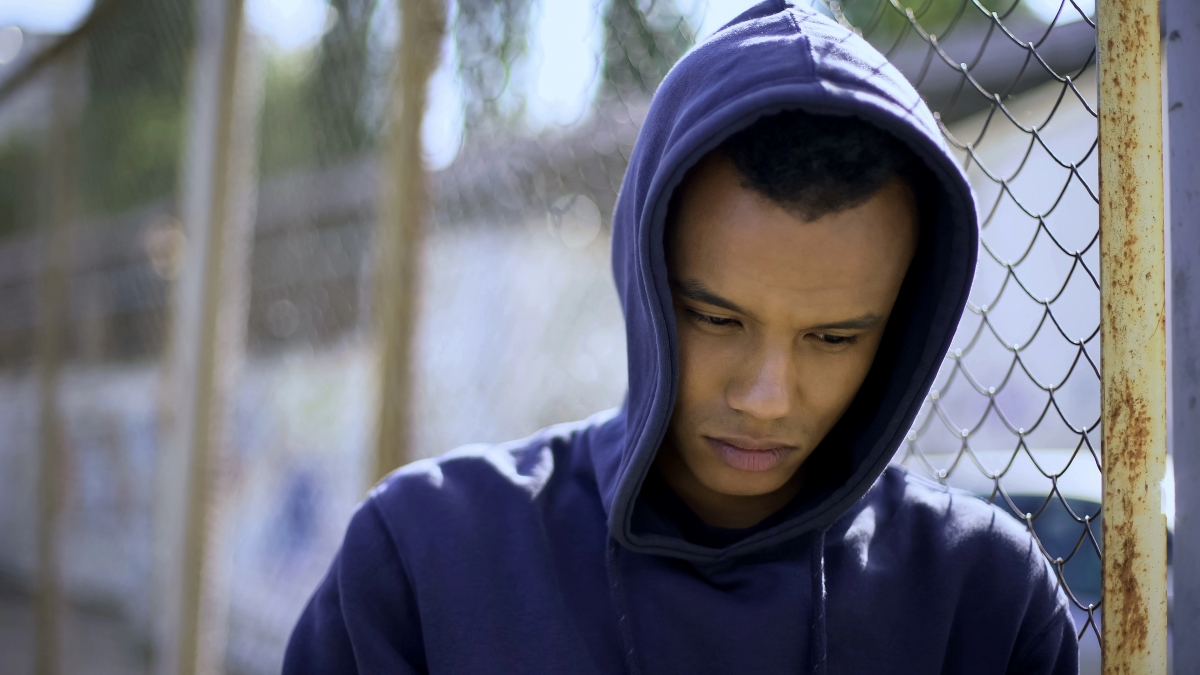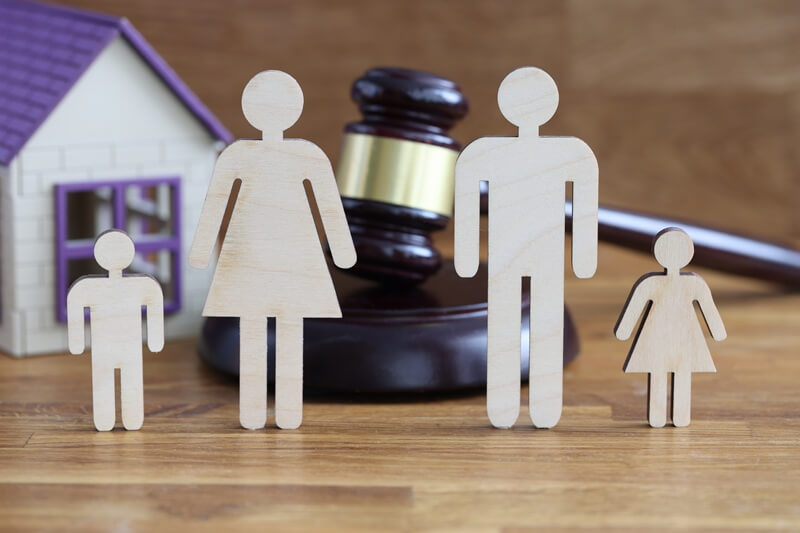Juvenile Criminal Defense Navigates The Legal System
Juvenile Criminal Defense Navigates The Legal System
Skilled Manassas criminal defense lawyers, including a Juvenile Criminal Attorney, become your strongest ally when your child, under 18, faces potential legal trouble. The juvenile justice system, though designed for minors, can be arduous. Therefore, these skilled lawyers, especially a Juvenile Criminal Attorney, ensure their support through navigating the complex legal process.
This article explains the difference between the juvenile and adult justice systems. You’ll learn how Virginia addresses offenses that young people typically commit and how a dedicated Juvenile Criminal Attorney can help these minors through their cases.
A Manassas Juvenile Defense Lawyer Can Help You
As a parent, the thought of your child facing legal trouble is alarming. Understanding the juvenile justice system and your child’s rights is essential. A skilled criminal attorney can protect them by ensuring that they uphold their legal rights.
The court proceedings involve complex legal procedures, and a skilled juvenile criminal attorney will help you handle the system’s intricacies. They will explain and simplify the legal jargon and stages of the process. These experienced lawyers will also build a strong defense strategy tailored to your child’s unique case.
A criminal attorney can work to minimize the severity of penalties. This may include probation, community service, or detention. They also support you and your family emotionally as they explore alternative programs.
Through dedicated advocacy and a deep understanding of the justice system, lawyers safeguard minors’ futures. Their commitment to protecting children’s rights ensures they receive optimal defense and support.

Differences Between Juvenile & Adult Justice Systems
In Virginia, the juvenile and adult justice systems operate on fundamentally different principles. While both systems aim to ensure public safety, their approaches to handling offenders differ significantly.
Here are their key differences.
Philosophy & Goals
Rehabilitation is a primary goal of the juvenile justice system, which focuses on reforming young offenders. Penalties for their offenses, such as probation and community service, are typically less severe. In contrast, the adult justice system emphasizes punishment and deterrence through harsher penalties, such as incarceration and fines.
Focus On The Individual
The justice system for young offenders focuses on the underlying causes of a minor’s offense. It aims to address these underlying factors to prevent repeating the crime and support rehabilitation. These include family background, upbringing, and mental health.
On the other hand, the adult system concentrates on the nature of the crime and the offender’s past criminal record. It focuses more on the offense and less on personal background.
Privacy
Records of minors are typically sealed to protect the young person’s privacy and future opportunities. In contrast, adult criminal trials are public, including court documents and criminal histories.
Knowing these differences is crucial when examining how various offenses are treated in the justice systems for minors and adults. A proficient defense lawyer will help you explore common offenses committed by minors in Virginia. These highlight the crimes often addressed within the justice system for young ones.
Common Offenses Minors Commit In Virginia
The juvenile justice system primarily aims to help minors become law-abiding adults. Judges often emphasize education and rehabilitative programs over confinement. However, severe cases or exhausted alternatives can result in detention or even placement in an adult prison.
Common offenses include the following. Note that some acts may lead to profound legal implications and enhanced punishments.
Larceny
Larceny is the wrongful taking of someone else’s property with the motive to permanently deprive the owner of it, which is essentially theft. This offense involves the unauthorized taking of property to keep it permanently.
In Virginia, this offense is categorized into two types. One is petit larceny, which is stealing property valued under $1,000. On the other hand, grand larceny refers to stealing property valued at $1,000 or more. Additionally, stealing a firearm, regardless of value, is classified as grand larceny.
Possession Of Tobacco
According to the Code of Virginia, individuals under 21 are prohibited from purchasing, attempting to buy, or possessing tobacco products. This includes cigarettes, cigars, rolling papers, nicotine vapor products, and hemp products intended for smoking. The only exception to this age restriction applies to active-duty military personnel.
Drug Possession
It is illegal in Virginia to knowingly possess a controlled substance without a valid prescription. Drugs are categorized from Schedule I to Schedule VI. Minors convicted of drug possession may face consequences, including fines of up to $500, community service, substance abuse treatment, and enrollment in a drug education program.
Minors can also face prosecution for “status offenses,” which are acts that become a violation based solely on their age. These offenses are illegal only because the individual committing them is a minor. For instance, while consuming alcohol may be legal for adults, these activities remain unlawful for young individuals.
Understanding these offenses is crucial for grasping the broader legal process within the juvenile justice system. The way these cases are handled, from initial referral to adjudication and disposition, reflects the system’s focus on rehabilitation and reintegration.
A Defense Attorney Guides Minors On The Process
While it significantly differs from the adult justice system, the juvenile legal process can be equally daunting. A skilled defense lawyer can support and guide you on these critical stages:
1. Referral
Law enforcement may arrest or refer a minor to the appropriate court system. Schools, parents, or community members can also report suspected delinquent behavior to initiate the process.
2. Intake & Diversion
At intake, a probation officer or court official assesses the case. Many cases are managed informally through diversion programs, which offer alternatives to formal court proceedings, such as counseling, restitution, or community service.
3. Petition
If the intake officer decides to file a petition, they will also determine whether the minor should be released to their parents or guardians or detained. This decision is based on factors such as if this will cause harm to themselves or the community and the risk of fleeing.
If detention is deemed necessary, a detention hearing will be held within 72 hours in the Juvenile and Domestic Relations District Court to assess the need for continued detention.
4. Detention
A young offender may be put in a detention facility while waiting for court proceedings for severe cases. This ensures they are monitored and prevented from potential influences that could lead to further offenses.
5. Adjudication
During the adjudicatory hearing, evidence and witness testimony are presented like an adult trial, and the judge decides if the minor is guilty. If they are acquitted, the case is dismissed. If found guilty, a dispositional hearing will follow.
Often, judges order a pre-disposition report to aid in determining the appropriate disposition. This report includes detailed background information about the juvenile, their family, community environment, school record, and any services they may require.
6. Disposition
The judge determines the appropriate sanctions and services at the dispositional hearing. The court may impose community sanctions such as warnings, restitution, or fines. The young offender could also be placed on probation, required to participate in community-sponsored programs, or placed in post-dispositional detention.
Upon fulfilling the requirements, they may be released by the court. Alternatively, the judge may commit them to the Department of Juvenile Justice. Here, they will undergo psychological, educational, social, and medical evaluations before being placed in a residential facility or correctional center.
7. Aftercare
This stage focuses on the young offender’s reintegration into their community following detention or commitment. Aftercare involves providing support and services to help the minor successfully transition back to daily life. It aims to assist them in becoming a productive, law-abiding member of society and to prevent future offenses.
Handling the intricacies of the justice system can be challenging. A reputable law firm will advocate vigorously for minors, ensuring their rights are protected.
The Irving Law Firm Is Minors’ Strong Advocate
Facing criminal charges can be daunting for both the minors involved and their families. In such critical times, The Irving Law Firm provides essential support tailored to the unique needs of young clients. We work diligently to build strong defenses, ensuring that we safeguard the rights of minors throughout the legal process.
By offering compassionate guidance and legal representation, our attorneys help them and their families confidently navigate the complexities of the legal system. We aim to achieve favorable outcomes and support the rehabilitation and positive development of the minors involved.
Engaging with our skilled criminal lawyer for minors can provide the strategic counsel and emotional support needed to manage and resolve juvenile charges effectively. The Irving Law Firm is your strong legal advocate, dedicated to leading you to better outcomes and smoother processes.
Summary
When your child faces legal issues, a Manassas criminal defense attorney is crucial for navigating the complex justice system. It aims to rehabilitate rather than punish, with proceedings differing from adult courts in philosophy, focus, and privacy protections.
Skilled attorneys help demystify legal jargon, guide you through each process stage, and develop a defense strategy to minimize penalties. They also provide emotional support and advocate for alternative programs. If you are wondering, “Is there a juvenile attorney near me?” The Irving Law Firm is here to support minors and their families, striving for favorable outcomes and effective rehabilitation.





